2004, Matador
Grade: C+
Ok, all together now. Slowly, let’s let it all out. Exhale.
Right, ok then. It’s October 2004 and, finally, The New Interpol Album Is Here! This is the deal straight-up: it’s called Antics, and it’s clear to me now that it’s not likely I’ll hold my breath for this band again.
To prep myself for the new album, I put Turn on the Bright Lights again last week and, amazingly enough, it still sounds great. Or sounded great, I guess. It’s now been two years since Interpol dropped that 2002 debut, an album that was, at the time, the flagship soundtrack to a revitalized and again-relevant New York music scene, and it’s no exaggeration to say that much of the indie world has been waiting with bated breath to see what their follow-up might yield. Despite repeated criticism suggesting that Interpol heavily channeled Joy Division, Turn On the Bright Lights received almost universal praise from the rock-digging music world, success perhaps capped off by winning the Best Album of 2002 from one of independent music’s most influential criticism sources. While I’m not sure I think it was the best 2002 had to offer, there’s never been a question in my mind that Turn on the Bright Lights – Ghost of Ian Curtis and all – was a magical album, one that lead to a great many nights spent drowning in my dingy London flat, with only a two-liter bottle of cheap cider to keep me company. And now, here was Antics, and, I hoped, a chance for more of those wonderful evenings.
But alas, no. I’d be lying if I said I was devoid of expectations before I put the album on – how could I, really? – but I did at least think it would probably be good. Unfortunately, Antics seems to confirm to me precisely what I feared about Interpol from the moment I first heard Turn on the Bright Lights: that what in fact I liked about the album had less to do with the quality of the music itself and more to do with its distinctive sound and sonic sheen. While these latter designations certainly deserve a place in any critical observation, the presence of them alone is the absolute representation of 20/21 century form over content in art.
Please allow me to take a detour for a moment.
Because I’m in the interest of being ultra-cool, I’m on the mailing list of the London club night Trash; each Monday the folks at Trash continue their desperate attempt to retain some kind of Hold On Cool – usually accomplished by bringing in edgy electrosleaze of Jet-esque shite-rock – and this time they wanted to let me know that the big act that week would be ole Carlos D, bassist of Interpol. Punters, they said, would be treated “to the finest cuts from his record collection as Carlos steps up to the Trash decks – a mix of post-punk, electro and new wave, with a nice sideline in classic rock, country and metal”. Right. Umm, how about a little Can I Get a Fuck You? I’m sure Mr. Ultracoifed is probably a nice guy, but who really needs to hear him ejaculating his record collection all over a crowd? (I’m thinking specifically about a blurb I saw in an issue of XLR8R this summer that suggested no one ever let Nick Zinner of the YYYs get behind the Technics at a party ever again.) And no, there isn’t any fucking irony in me saying this right now. It’s just our ability to be easily wowed by fake plastic rather than hold out for significant artistic excellence, whatever the fuck that is anymore. Don’t get me wrong, I’m not saying I ain’t wowed by worthless fake shit too, and again, I dug their first album, but it seems worth mentioning this point in a discussion about Interpol.
If you’re still with me, let’s get back to Antics. After repeated listens, my basic feeling now about the album is best described by “Eh”. Try as I might, I haven’t stopped experiencing feelings of sameness to the point where even now, after listening to the album 15-20 times, I still feel like I don't remember which songs sounds like what (except perhaps "Slow Hands," describes by one music reviewer as having "Interpol's first unabashedly disco chorus"). It's honestly hard for me to even get a sense of how far along I am when I listen to it because there are few distinctive sounds or even “Fitter Happier More Productive” checkpoints within the album itself.
Listening to Antics gave me a sensation that I can't remember having in a long time, the feeling where you put an album on and then suddenly remember twenty-something minutes later that you’ve been listening to it after it happens to get a bit noisier, like, “Oh shit, I’m listening to Album X.” Usually this only happens when I’m listening to an album like Music for Airports, but that was Eno’s intent; the fact I experienced this listening to Interpol, however, seems cause for alarm. It’s kind of funny (or sad, I guess), because when I first listened to Antics, the intro notes to the opener "Next Exit" were REALLY exciting; not just because of my anticipation to hear new shit, but because they also sounded different than Turn On the Bright Lights. I thought, “Alright, here we go!” But after just one listen, the excitement had almost entirely disappeared; a single run-through made it apparent they'd simply chosen to pick that one new sound and play it for forty minutes, with less variation and worse songwriting than their first time around the block. Sweet. Where Turn On the Bright Lights had a bunch of beautiful "moments" – the little musical flames that just attack you and burn themselves into your mind – Antics just sounds like a forgettable minor-chord soup of quasi-melancholy. Sure, I guess they sound less like Joy Division than before, but now they're just - in the words of Morrissey - a bunch of "crashing bores."
But I’m going to be fair: not every single moment of this album is a waste of time. I do not think Antics is terrible, just supremely mediocre. There are at least two moments on this album, that are strong enough to rouse me from my general boredom.
- At about 1:20 into track four, “Take You On A Cruise,” the music cuts from a typically sludgy Antics verse into a few seconds of quiet, arpeggiated guitar chords, which then explodes into a chorus: “Along the way / Tears guarding the wake of your life / There's nothing like this built today / You'll never see a finer ship in your life / We sail today”. This moment is just spellbinding, and it’s the single point on Antics where Interpol come together and demonstrate that they really do understand the power that can be harnessed with proper dynamics. It also gives me a reason to think that maybe Turn On the Bright Lights was not a fluke, and that this album is not a demonstration of Interpol’s actual place in world, but just an unfortunate delay to greater success. - And track eight, “C’Mere”, is just a straight-up good track. It’s the briefest of all songs on Antics and this seems to work: the boys do a good job condensing all of their best ideas into three minutes and eleven seconds. This song is powerful and compelling in a way that they’ve been in the past but fail to do so on the rest of this album.
So yeah, one good song and one great moment on Antics – but as Jay-Z once said, a one in ten average is pretty weak [look for lyrics to “the Takeover”]. The saddest thing for me about this album is not even that I think it’s crappy, but that it’s managed somehow to ruin my ability to enjoy their previous music. Every time I’ve put on Turn on the Bright Lights since hearing Antics, well, it just hasn’t sounded the same; it’s kind of like trying to feel good about a lover you’ve taken back even after you found out they cheated on you.
The verdict: for people who haven't heard Turn On the Bright Lights, I'd give this album maybe a C+/B- or so, but for those who have, I give it a Don't Bother.
Ben Scheim
 Suicide Squeeze, 2007
Suicide Squeeze, 2007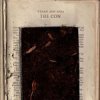 Vapor/Sire, 2007
Vapor/Sire, 2007

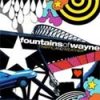 Virgin, 2007
Virgin, 2007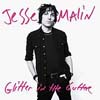 Adeline Records, 2007
Adeline Records, 2007
 Epic, 2007
Epic, 2007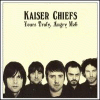 2007, Universal
2007, Universal "Flathead” has already been beaten to death in the latest iTunes ad, but none of its simple “handclaps and fist-pumps” charm is lost on repeated listens.
"Flathead” has already been beaten to death in the latest iTunes ad, but none of its simple “handclaps and fist-pumps” charm is lost on repeated listens.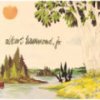 Sure, the riffs that made his band the toast of NYC post-punk are still there on tracks like “Everyone Gets a Star” and “In Transit,” but the majority of the disc has a softer, sweeter feel to it, and frankly, better hooks than most of The Strokes recent output.
Sure, the riffs that made his band the toast of NYC post-punk are still there on tracks like “Everyone Gets a Star” and “In Transit,” but the majority of the disc has a softer, sweeter feel to it, and frankly, better hooks than most of The Strokes recent output. 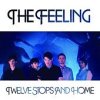 First single “Never be Lonely” treads closest to the aforementioned light rock of Roger Hodgkin’s AOR staple band, and actually does it justice. The same can be said for “Fill My Little World,” with its piano-driven riff and acoustic guitar verse.
First single “Never be Lonely” treads closest to the aforementioned light rock of Roger Hodgkin’s AOR staple band, and actually does it justice. The same can be said for “Fill My Little World,” with its piano-driven riff and acoustic guitar verse. 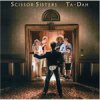 2006, Polydor
2006, Polydor 2006, The Vanity Label
2006, The Vanity Label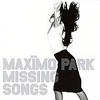 2006, Warp
2006, Warp 2005
2005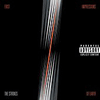 2006, RCA
2006, RCA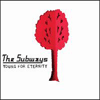 2006, WEA
2006, WEA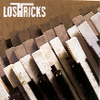 2005, Long Lost Tricks Music
2005, Long Lost Tricks Music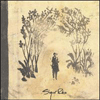 2005, Geffen
2005, Geffen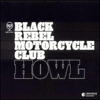 2005, RCA
2005, RCA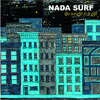 2005, Barsuk Records
2005, Barsuk Records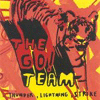 2005, Columbia
2005, Columbia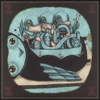 2005, ATO Records
2005, ATO Records
Recent Comments